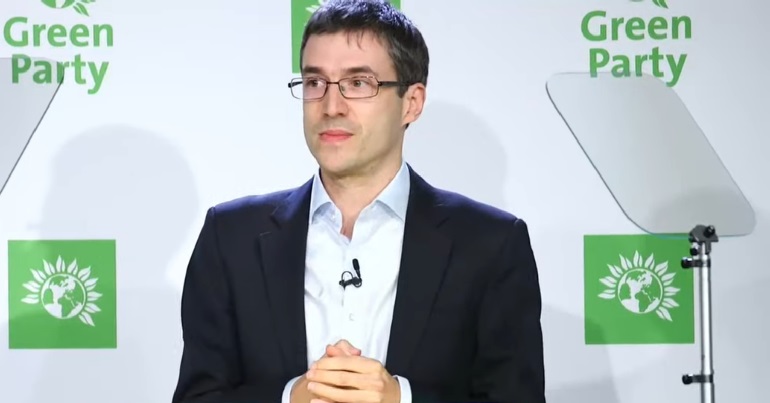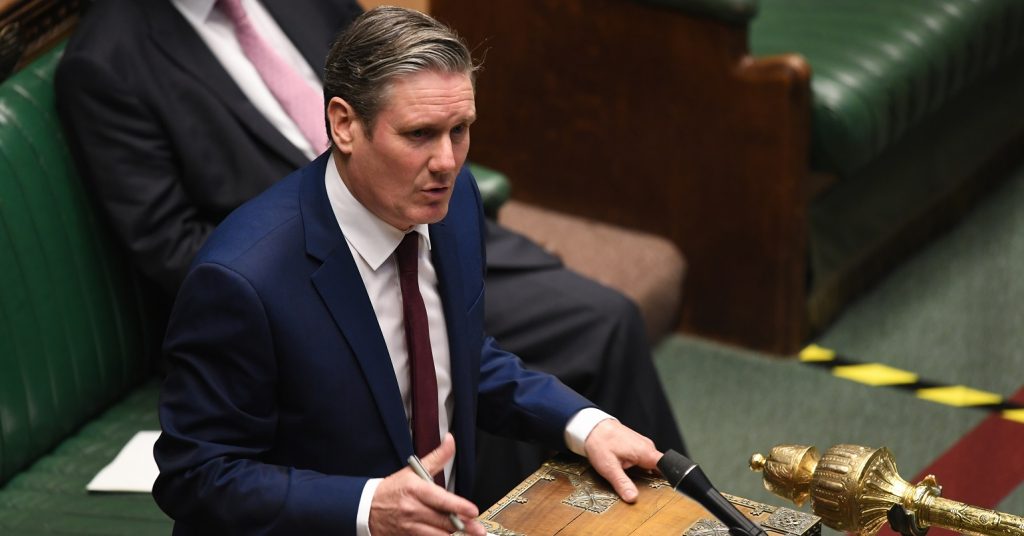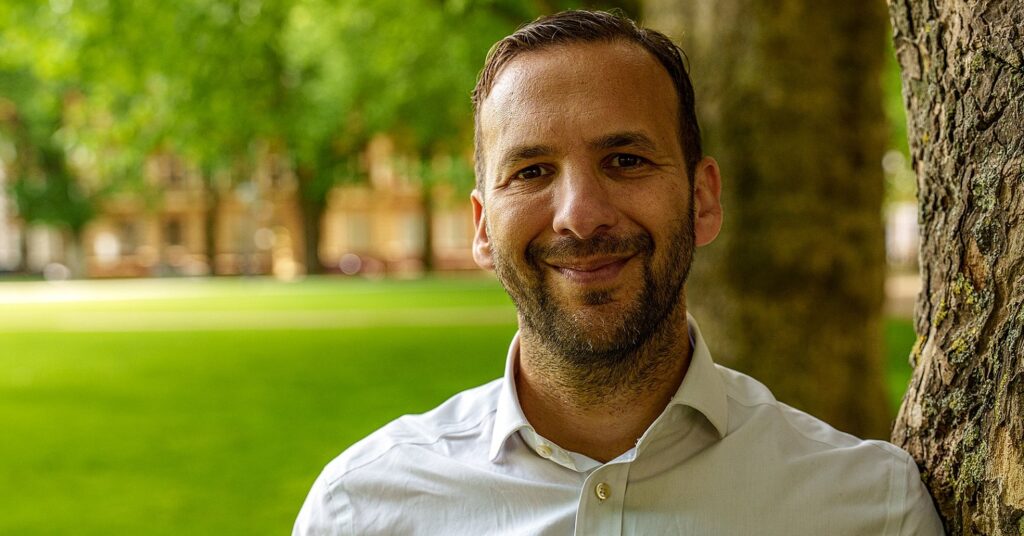The Green Party’s future is to the left of Labour

For many of us in the Green Party, the Corbyn leadership of the Labour Party presented a moral quandary. He was the most radical leader the party had seen in a generation, and certainly took Labour closer to Green policy than we’ve seen before. Though the list of bad Labour policies still remained long (Trident renewal, continued drug criminalization, refusal to back a fair voting system etc) it did feel like Labour was moving in the right direction at last.
Some people left the Green Party to join Labour at the time, a tactical decision I certainly don’t judge them for – while others like me stayed in the Greens both because I believe our policies to be the best, and because I didn’t want to see us slipping towards the soft green centrism that some of our sister parties across Europe have ended up with. While I made clear in the election my disagreement with forming a pact with the Liberal Democrats, and certainly didn’t enjoy seeing colleagues standing against Labour in super-marginals – I do believe that our democracy is stronger, and our politics better for having a party that rides outside of Labour and attempts to steer the debate our way.
As we come up to this year’s leadership election I’m struck that the party is at a crossroads. The axis of the last few years’ politics, Britain’s decision to leave the EU, has now passed. The Labour Party as we briefly knew it – a vehicle for social movements, and a genuine force for radicalism, appears to be dying. Just a brief look at recent Labour pronouncements – from Keir Starmer’s bizarre and insulting words on Black Lives Matter, to the party’s refusal to recommit to 2030 net zero targets, shows that they no longer feel accountable to the movements from which they previously derived some of their political power.
In one sense this presents the Green Party with an electoral chance. Our best ever general election result – by quite some way – was when, in 2015, we ran a campaign pitched plainly to the left of Labour. When they made mugs saying “Controls on Immigration” we made ones saying “Standing up for Migrants”, when they said ‘austerity-lite’ we said ‘no austerity’. And it paid off – with over one million people voting Green. To build on last year’s exceptional local elections, and our second best ever general election result – I believe we need to be bold.
A 2020 leadership election, with Keir Starmer as Labour leader surely provides us with such an opportunity. But it shouldn’t just be about us. The Green Party is at its best when it is the voice for social movements in the council chamber, parliament and on the TV and radio. Our support for those movements isn’t just about where we can find political space, it should be in our DNA. The next few years should be a chance for us to show movements – from Black Lives Matter to the Climate Strikers – that we are here to support them. We may like to think they already know it, but 3 years of EU obsession (which I was as guilty of as anyone!) has left some people thinking the Greens have drifted off towards the political establishment. Despite some amazing work – from Sian’s radical housing plans, or police monitoring to Caroline’s brilliant work with the peace movement in parliament or the strength of LGBTIQA+ Greens reaffirming our party’s resolute backing for trans rights – we’ve sometimes seemed too distant from the groups whose ideas and activism should be running through our party. So a pivot back towards radicalism won’t just benefit us, but I’d hope it will also help strengthen the social movements in this country.
The context of this leadership election for the Greens is one of change. The country has been shaken like never before in my lifetime – and the future looks less certain than ever. A successful leadership team will look firmly at the future, riding outside the blinkered vision of the others and telling a story of what a post-covid economy and society should be like. And we should also be honest that such a leadership, if it’s to expand the party’s support base, cannot go back to solely focusing on the environment – a tactic that was deployed in our earlier years when we failed to achieve any serious electoral success. People in Britain are on the breadline – if we don’t meet them where they are at, and link the twin crises of environmental degradation and economic failure – then we risk sliding into oblivion.
It’s great to see this election contested, because debate is always good. I’ll be watching closely – and casting my vote for the candidates who chart a course to victory that supports social movements, drags the political discourse in our direction, broadens our appeal and sees more greens elected.
PS. We hope you enjoyed this article. Bright Green has got big plans for the future to publish many more articles like this. You can help make that happen. Please donate to Bright Green now.




The headline states that the future of the Green Party is to the left of Labour, but I can’t find any explanation in the article why that should be so. In any case, the political position of our party will be decided by its members rather than by an article in Bright Green.
“Not left or right, but onward and upward.” Sorry, but what on earth(!)does this mean?
Capialism is not a relic of the past, it is the driving force of the world economy, of course evolving as ever, and now in the digital age, evolving ever faster.
It leaves people divided, then subdivided, then again, along national and cultural lines, by age,by sex and so on. In the meantime, the old-fashioned supposedly out of date rich and super-rich salt the wealth away to pleasant havens, whilst disappointed waves of redundant workers turn their frustration on to their neighbours, not their enemies.
We need a clear policy to be the anchor of our thinking and our appeal that reduces these differences (“…small fleas and lesser flea, upon their backs to bite them…”).
The battle to get awareness of the looming ecological crisis accepted HAS BEEN WON.
The Green Party has played an honourable in this victory. The question now is what is to be done, what do we need to do now? We have no monopoly of policies to transform our economic life to one which might get us out of the mess, and that is not a tragedy at all.
But as a POLITICAL PARTY, we have to promote social policies that work to unite the population as far as possible, and do battle with the current fiercely propogandised idea that the aim in life is maximum consumption. We are looking for a cultural revolution, please excuse the phrase, which has been made almost unusable after its criminal misuse in Maoist China.
Our flagship policy, and that means all others are subordinate to that, should be to promote Universal Basic Income, set at a level which significantly redistributes wealth, which can reduce the fear of a rapidly changing economy, and which starts to promote the idea that each person’s aim in life should be not to get ahead of everyone else, but to try to find ways we can all live together in peace with the planet.
i dont understand any of this. its also to long. maybe you should write on the blog rather than post. is it a reply to Alex or to one of the posts below and which one.
hmmm how will “pivoting” to the left of Labour help given Alex is calling for an aliance with them that they will never accept. Dont agree with this analysis at all. The Greens adoption of focused local campaigning is what has led to councilors being elected.
When you say Left wing policies what you really mean is anti-cuts, workers rights eg,
Labour have the monoply on those and bringing them up in campaigns leads to an increase in there vote. Just like bringing up immigration does with UKIP. Note im not saying we should nt be for some of these policies just that campaigning on them generally helps Labour even if green policies are better.
Coincidentally the left has nothing to say to carers, people on benefits independent workers eg issues that it might be more prudent to raise.
At end of day the Greens have got best results when environmental issues are to the fore but getting people elected requires community campaigning,
The terms “capitalism”, and “socialism” seem to be anathema to many “green” people, I suppose because the immediacy and urgency of the ecological crisis seemed to be more important than the “old” politics.
However, the ecological mess of the world has been made in an era when “capitalism” has reigned supreme, when the pursuit of monetary gain has been the old and new testament, the Bible, of the world order. AND STILL IS. All thinking people have finally woken up to the ecological emergency, but the movers and shakers of the world economy and order, although well aware of the crisis, are in a cleft stick, because all their fundamental economic assumptions and their economic interests CANNOT BE SQUARED WITH FINDING THE RADICAL CHANGES NECESSARY TO GIVE US SOME CHANCE OF SOLUTIONS.
Call it socialism, call it communism, call it what takes your fancy, but the pursuit of monetary gain has to be replaced as the main mover.
The Green Party has myriad policies in its locker, all of which I can support, but they do not add up to offering solutions to the overwhelmingly urgent world or national situation. They mostly reflect the way that the establishd order keeps people fragmented one from each other, and one group from another.
Our core policy, our flagship policy, should be Universal Basic Income, set at a level which seriousy redisributes income.
I’m glad the article admits that the obsession with the EU was the main vehicle that let the Tories in.
I’ve left Labour as it moves right. And will almost certainly join the Greens now. We can now focus on the real policies instead of backing some faux notion of an EU that is progressive which it isn’t it’s monetary system is austerity biased and has an ideology that supports financialisation.
let’s get our people behind change and then se can send a message across Europe that will be more pro-European than the EU.
I agree Green thinking is not inherently socialist, or capitalist, but once you get to the “how”, it coincidentally looks more socialist than Labour. Our battle is to maintain focus on what matters most, i.e. no planet – system irrelevant. Do we have candidates who when elected at any level, can make a difference and do we have leaders who can convince electors of how they will do that? We exist because we believe no other party is doing the job. So beware of short term electoral dalliances that come back to haunt us.
Alex a very interesting article. The sad thing is (and I say this as a Green Left supporter of Brexit, or as I prefer Glexit) the Greens under Lucas and Co have already pivoted towards the establishment by supporting Remain and then, in her case, announcing disdain for a referendum vote should it again be to leave.
There are two further points I would make though. The first is that I (a Green Party member for over 30 years, albeit well out of sync with current regime) am not now sure that a successful strategy can be attained by simply adding up in an unproblematic manner all demands of all social movements. I used to think that when I was in Big Flame many years ago, now I’m not so sure. This matters especially because it was not (just) economics that led many ex Labour voters to go Tory in 2019, there was the culture wars aspect which the Tories will seek to play on again. Secondly, there is the big strategic question is how does any radical movement go from piling up votes to facilitating a transition to a better, dare I say it, Green Socialist, society. Given our current electoral system, which the Tories have no incentive to change, Labour cannot be ignored. And however vile Starmer is, there are still socialists in Labour we should not abandon. The welcome fact Forward Momentum swept the board in their recent election shows they haven’t gone away, and while things look dire for the Labour Left now, they looked worse before a Corbyn crept onto the ballot in 2015.
I realised I have raised more questions than provided answers but that is the nature of strategic debate. Well done for starting one!
Agree-the Greens made a massive error by supporting the EU so uncritically while we have seen that it is the ideology of the EU itself that is anti-Europe with it;s disfunctional monetary system and austerity bias that props up a corrupt financial regime.
The Greens making an alliance with the disgraceful austerity supporting Lib Dems was another gross error and Molly Scott-Cato standing against Drew in Stroud was beyond vile, letting in an utter vacuous Tory.
I have now left Labour as Starmer is clearly pushing the Party towards Blairism 2.00 using bogus antisemitism and belittling BLM in order to get the authoritarian vote of the lost Red Wall.
I will probably join Greens now but let’s get the policies across bright and clear with no fantasies about the EU.
Actually it is not. Green politics is not inherently socialist and needs to go above the outdated left-right paradigm. Not left, not right, but onward and upward.
Socialism and capitalism are 20th century relics. The green consensus needs to be neither socialist nor capitalist, since it also relies on localism, communalism and a cyclical economy.
Thank you Alan … The ‘isums’ of the last century need to find a critical friend to make any sense now … And we have always understood that and have the lives experience to make both things better now and the humility to seek better for all our future’s
Fantastic, will be sharing this.